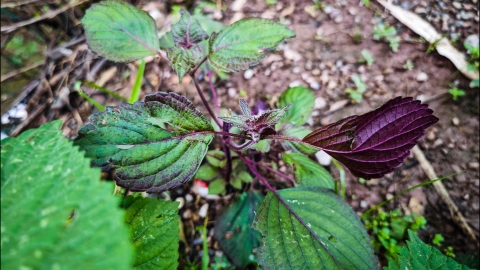Can perilla leaf tea treat pharyngitis?
Perilla leaf tea may have a certain auxiliary relieving effect for pharyngitis caused by wind-cold invading the lung, but it has no therapeutic effect for pharyngitis caused by wind-heat attacking the lung or yin deficiency with fire hyperactivity, and may even worsen the condition. If any abnormalities occur, timely medical consultation is recommended. Detailed analysis is as follows:

When pharyngitis belongs to the syndrome of wind-cold invading the lung, drinking perilla leaf tea may play an auxiliary role. Patients with this syndrome commonly experience symptoms such as throat discomfort, itchy throat with cough, clear and thin phlegm, and worsening symptoms when exposed to cold. Perilla leaf is warm in nature and acrid in taste, capable of dispersing wind-cold and promoting lung function to benefit the throat. It can relieve throat itching and pain, cough, and other discomforts by expelling wind-cold pathogens from the throat. However, this effect is merely auxiliary and cannot replace drug treatment.
If pharyngitis is caused by wind-heat attacking the lung or yin deficiency with fire hyperactivity, perilla leaf tea is not suitable. Patients with the wind-heat type often exhibit symptoms such as red, swollen, and painful throat, a burning sensation, yellow and thick phlegm, fever, and thirst. At this time, the warm-drying nature of perilla leaf will aggravate internal heat pathogens, leading to exacerbated throat redness and swelling, and more intense pain. Patients with the yin-deficiency type commonly experience symptoms such as dry throat with dull pain, foreign body sensation, worsening symptoms at night, dry mouth with little saliva. Drinking perilla leaf tea may consume yin fluids, thereby worsening symptoms such as dry throat and foreign body sensation.
If severe throat pain persists, accompanied by fever, hoarseness, or worsening symptoms, immediate medical attention should be sought for standardized diagnosis and treatment, avoiding blind reliance on perilla leaf tea, which may delay proper treatment.






